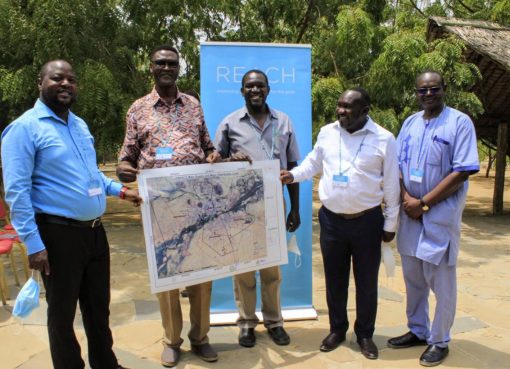Kenya National Population and Development 2025 Conference, which brings together researchers, policymakers, scholars, private sector leaders, and development partners kicked off at the University of Nairobi on Tuesday.
The conference’s main objective is to discuss the critical role of population dynamics in shaping Kenya’s future.
The University of Nairobi (UON) in partnership with the Population Studies and Research Institute (PSRI) and the National Council for Population and Development (NCPD) is working to provide accurate data and research to guide national policies at the event themed ‘Navigating the Future: Population Dynamics and Sustainable Development in Kenya,’ which is set to run from March 11 to 13, 2025.
The first day of the conference included plenary panel discussions on human capital development (youth bulge, demographic dividend), breakout sessions on topics such as population health and well-being, emerging disease patterns, population dynamics, sustainable development population policy & programme implementation, and empowering Kenya’s youth through digital innovation hubs.
The host of the event, University of Nairobi Acting Vice Chancellor (VC) Professor Margaret Jesang’ Hutchinson opined that Kenya’s economic aspirations hinge on how well it harnesses its human capital. She noted that population is not only a statistic but also the foundation of national progress.
“Every nation rises only as high as its population takes it. Kenya’s demographic trends will determine its growth trajectory, and we must make strategic investments in our people to secure a prosperous future,” said Prof. Hutchinson.
She mentioned that Kenya, like much of Africa, is experiencing rapid demographic shifts including urbanization, changing family structures, and shifting fertility rates.
According to the acting VC, one of the most pressing concerns is youth unemployment, with millions of young people entering the job market each year.
In this regard, Prof. Hutchinson called for targeted investments in education, skills training, and entrepreneurship to ensure the country’s youthful population becomes an asset rather than a burden.
“A youthful population is Kenya’s greatest strength, but only if we equip them with the right opportunities. Without proper investment, this demographic advantage could turn into a crisis,” cautioned Prof. Hutchinson. “Good policy must be backed by good data. We must ensure our strategies are informed by research, not guesswork,” she added.
Maintaining that the conference is about action and not just about discussion, the Ag VC urged all participants to actively participate in crafting practical, inclusive, and forward-thinking policies.
“This is not just another meeting. It is a dialogue on destiny. Kenya’s future depends on how well we navigate our population dynamics and turn challenges into opportunities,” she reiterated.
Also speaking at the event was Dr. Julius Karangi, Chairperson of NCPD who emphasized the importance of a population-centered approach to development, noting that Kenya must harness its demographic potential for sustainable growth.
“This conference is a crucial platform for stakeholders to deliberate on how best to manage population trends in alignment with national and global development goals,” he said.
A key highlight of the conference according to Dr. Karangi, was the Sessional Paper No. 1 of 2023 on the Kenya National Population Policy for Sustainable Development which he maintained is a great step towards achieving the vision.
The Chairperson highlighted that this policy builds on previous population strategies while addressing emerging challenges such as population growth, age structure, and vulnerable groups, fertility trends, mortality and disease burden, urbanization and migration, environmental sustainability and disaster risk management, data-driven decision-making, and resource mobilization for population programs
Dr. Karangi stressed that the policy is multifaceted and multisectoral, thus requiring collaboration from all stakeholders for successful implementation.
Additionally, the Chairperson revealed that the Council also developed a Strategic Plan (2023-2027) that serves as a results-based management tool for good corporate governance, institutional efficiency and effective delivery of services in the implementation of the policy.
“The Strategic Plan has identified and prioritized programmes, projects and activities that are in tandem with the Council’s mandate and are also essential for the implementation of the Fourth Medium Term Plan of the Kenya Vision 2030, the Bottom-Up Economic Transformation Agenda, East Africa Community Vision, African Union Agenda 2063, United Nations Agenda 2030 for Sustainable Development and other relevant international, regional and national protocols and sector initiatives,” he stated.
Dr. Karangi assured that the NCPD Board is committed to ensuring a conducive environment and will lead in mobilizing adequate resources for the implementation of the policy through the Strategic Plan.
As the conference remains pivotal in identifying areas of convergence in the implementation of the policy, stakeholders remain hopeful that collaboration between government, academia, and the private sector will lead to policies that drive sustainable development and unlock Kenya’s full potential.
By Winnie Saha





